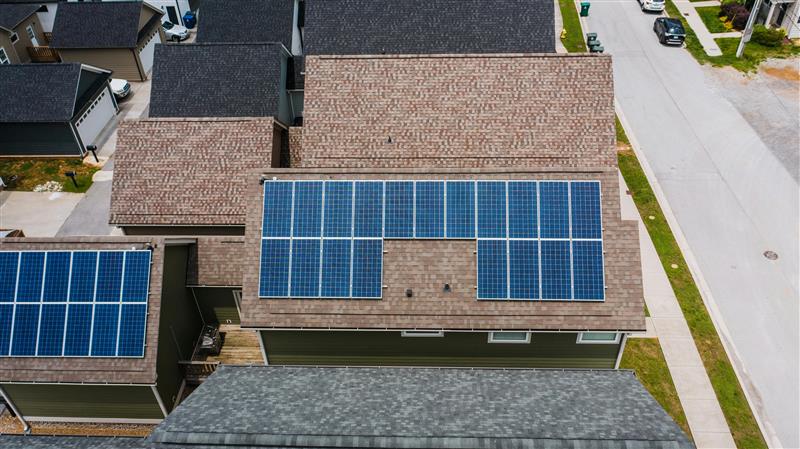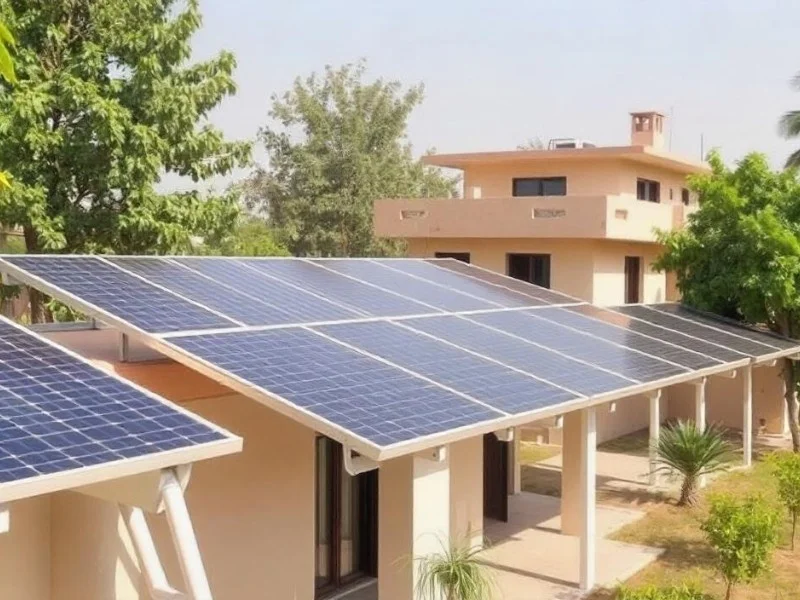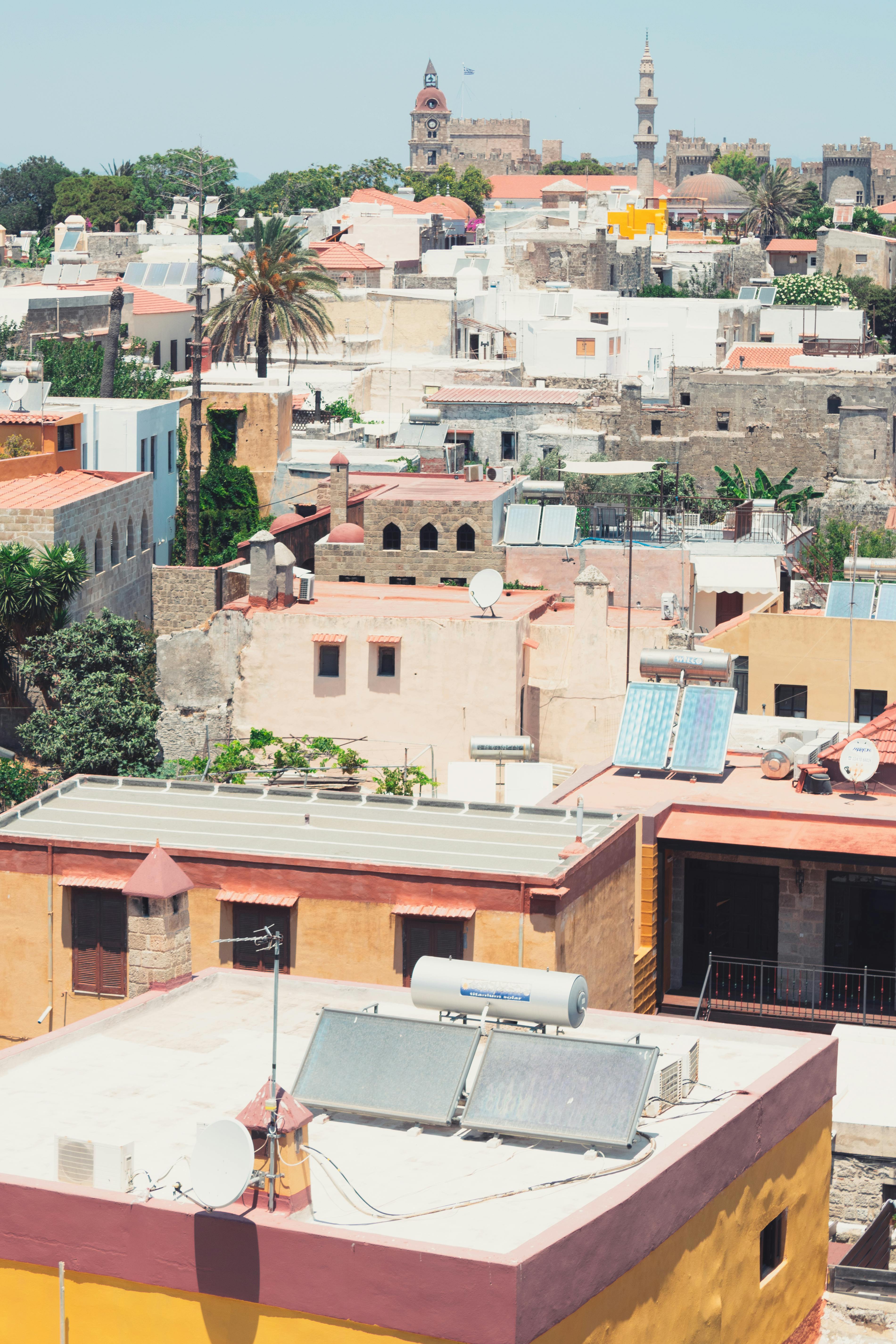Switching to solar energy is a strategic move that benefits both your financial bottom line and the environment. If you're a small business owner or a homeowner, understanding how to estimate the solar capacity you need is crucial. This detailed guide will walk you through the steps necessary to determine the optimal solar capacity for your property, ensuring efficiency and cost-effectiveness. We'll use a practical example featuring Mr. Kulkarni, a small factory owner from Pune, to illustrate the process.
Understanding Solar Capacity Requirements
Before diving into the calculations, it's important to understand what solar capacity is. Solar capacity, measured in kilowatt-peak (kWp), represents the maximum output of a solar power system under ideal conditions. Estimating the correct solar capacity ensures that your system meets your energy needs without over-investing in unnecessary capacity.
Step-by-Step Guide to Estimating Solar Capacity
Step 1: Calculate Your Average Electricity Bill
Your electricity bill is a critical factor in determining the solar capacity you need. Here's how to approach it:
Collect Your Bills:
Gather your electricity bills for the past 12 months. This comprehensive data accounts for seasonal variations in energy use, ensuring an accurate estimate.
Analyze Consumption:
Look at the units or kilowatt-hours (kWh) consumed each month. Here's a sample breakdown of Mr. Kulkarni’s monthly consumption:
.jpeg)
Calculate Solar Capacity:
Use the following formula to determine the required solar capacity:
.jpeg)
For Mr. Kulkarni:
.jpeg)
Note: In India, 1 kWp of solar power typically generates 4 kWh per day. This can vary based on factors such as location, sunlight hours, and weather conditions.
Importance of Using 12 Months
Considering a full year’s data is essential. Electricity usage spikes in summer due to air conditioning and drops in winter. Using an average prevents overestimating or underestimating your solar needs.
Step 2: Measure Available Roof Area
Next, determine if your roof has enough space for the required solar panels:
Measure Your Roof
Use a tape measure or refer to your building plans to find the roof area. Note any obstructions that might cast shadows on the panels.
Calculate Space Needed
Typically, 1 kW of solar requires 10 square meters (or 100 square feet). Newer, more efficient panels may require less space.
For Mr. Kulkarni’s 2 kWp system, he needs:
.jpeg)
Since Mr. Kulkarni has 300 sq. ft. available, he has ample space for his solar panels.
Considerations
Ensure there are no obstructions like chimneys or antennae that could cast shadows on the panels, reducing their efficiency. Consider the orientation and tilt of the roof, as these factors influence solar power generation.
Step 3: Check Your Sanctioned Load
The sanctioned load is the maximum load approved by your electricity provider:
Find the Sanctioned Load
Look for this information on your electricity bill. It’s also known as the connected load.
Match Your Solar Capacity
Ensure your solar capacity does not exceed this sanctioned load.
Mr. Kulkarni’s sanctioned load is 2 kW, so his 2 kWp solar system is within limits.
If your roof area supports the required capacity but your sanctioned load is lower, you may need to request an upgrade from your electricity provider.
Comparing the Results
After completing the three steps, compare the results to determine the actual solar capacity needed:
Comparison
The lowest value from the three steps will be your final solar capacity. This ensures that your system is efficient and that you don’t over-invest.
Example Comparison
For Mr. Kulkarni:
- Average Electricity Bill: 2.083 kWp
- Available Roof Area: Can accommodate more than 2 kWp
- Sanctioned Load: 2 kW
The final solar capacity for Mr. Kulkarni’s house would be 2 kWp, based on the lowest value (sanctioned load).
Additional Considerations
Determining your solar capacity is just one part of the equation. Several other factors can influence the effectiveness and efficiency of your solar energy system. Here are some important considerations to keep in mind:
1. Solar Panel Efficiency
Solar panel efficiency refers to how well a panel can convert sunlight into usable electricity. Higher efficiency panels generate more power in a given area, which can be crucial if space is limited. Research and compare different types of panels, such as monocrystalline, polycrystalline, and thin-film, to find the best fit for your needs.
2. Geographic Location
Your geographic location significantly impacts the amount of solar energy you can harness. Regions closer to the equator typically receive more sunlight, making solar energy more viable. Utilize solar insolation maps or consult local solar energy experts to understand the solar potential in your area. Additionally, seasonal variations should be considered, as they affect sunlight availability.
3. Orientation and Tilt of Solar Panels
The direction and angle at which your solar panels are installed play a vital role in their performance. In India, for example, south-facing panels at an optimal tilt angle can maximize solar energy absorption. Adjustable mounts can help achieve the best orientation and tilt, adapting to seasonal changes for maximum efficiency.
4. Future Energy Needs
Consider any potential changes in your energy consumption. If you plan to purchase electric vehicles, add new appliances, or expand your home or business, your energy needs will increase. Incorporating these future needs into your initial solar capacity estimation can save costs on future upgrades.
5. Battery Storage Systems
Incorporating battery storage into your solar system can greatly enhance its effectiveness. Batteries store excess energy generated during sunny periods, providing power during the night or cloudy days. This not only ensures a continuous power supply but also maximizes the use of generated solar energy, reducing reliance on the grid.
6. Net Metering Policies
Check your local net metering policies, which allow you to feed excess solar energy back into the grid in exchange for credits. These credits can offset your electricity bills, providing additional savings. Understanding the regulations and benefits of net metering in your area can influence your decision on the size and design of your solar system.
7. Environmental and Aesthetic Considerations
Consider the environmental impact and aesthetics of your solar installation. Modern solar panels come in various designs that can blend with your roof or façade. Additionally, ensuring that your installation adheres to environmental standards and certifications can enhance your property’s value and appeal.
8. Maintenance and Durability
Solar panels require minimal maintenance, but it's important to understand the upkeep needed for optimal performance. Regular cleaning, monitoring for damage, and ensuring that no new shadows obstruct the panels are essential tasks. High-quality panels often come with warranties of 25 years or more, providing long-term reliability and peace of mind.
9. Financial Incentives and Rebates
Take advantage of government incentives, rebates, and tax credits designed to promote solar energy adoption. These financial benefits can significantly reduce the upfront cost of installing a solar system. Research the available programs in your area, such as subsidies, low-interest loans, and grants, to maximize your investment.
10. Professional Installation and Support
Finally, choosing a reputable solar installation company is crucial. Professional installers ensure that your system is correctly designed, installed, and maintained. They can also provide valuable advice on optimizing performance and navigating regulatory requirements.
Ready to Embrace Solar Energy?
Starting with the right size solar system is crucial for maximizing efficiency and savings. By using these two methods and considering additional factors, you can make an informed decision tailored to your specific needs. Contact us today to explore your solar potential and take the first step towards a sustainable future!

.webp)
.webp)
.webp)
.jpg)





.jpg)
.jpg)






.jpg)





.jpeg)












.jpg)


.png)
.png)
.png)
.png)
.png)
.png)


.png)


